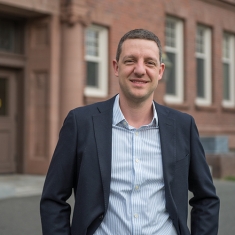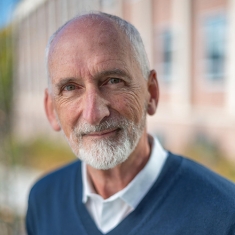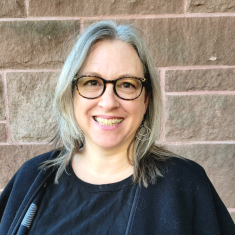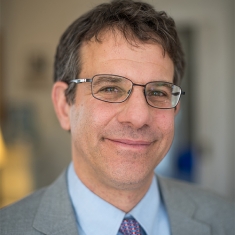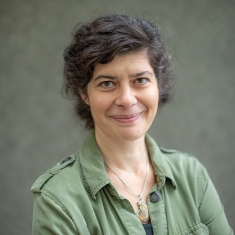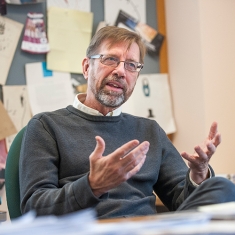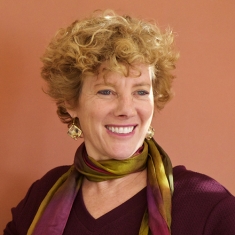The Community Engagement and Social Change Concentration (CESC) connects community work with academic life by supporting students to embed community work directly into their curricular studies. The Jandon Center for Community Engagement is the organizational hub for the CESC.
You will draw on the rich course offerings from all of the Five Colleges, as well as from the breadth of resources and expertise of the Smith Jandon Center for Community Engagement to define a focus of study related to forging equitable systems and structures. You will expand and deepen your understanding of local, national and global issues affecting communities. You will develop the skills, awareness and knowledge essential to engaging mindfully and effectively with communities. Examples of students’ areas of interest have included immigration and citizenship, public health, education, law and social policy, community organizing, community design and built environments, grassroots narratives and environmental justice.
Announcements
Information About the Concentration
For information about the concentrations, please join us at the Presentation of the Concentrations on Tuesday, October 3, 12:15 p.m., Carroll Room, Campus Center 2nd Floor. Register to attend.
Working with the oversight of a faculty adviser and, as appropriate, a concentration mentor from the Jandon staff, you will chart a pathway that combines interdisciplinary course work with practical work in communities. Concentration mentors have broad expertise on community engagement and institutional memory of how previous concentrators met CESC objectives. Faculty advisers have content expertise that will help students realize their specific interests within the CESC framework. Depending on your interdisciplinary focus, you are encouraged to link your work to the considerable resources of the college's other centers and School for Social Work.
Gateway Course
CCX 120/IDP 120 Community-Based Learning (CBL): Ethics and Practice
Service learning, civic engagement and community service have become familiar terms for describing forms of community-based learning (CBL) in higher education. Theorists and practitioners continue to debate how to bring community issues into the classroom and how best to bring students into the neighborhoods surrounding their colleges and universities. IDP 120 considers these issues through exposure to both the literature of community engagement and the experiences of those who practice its different forms.
This course serves as a gateway course for the Community Engagement and Social Change Concentration. One of the primary purposes of the class is to give students exposure to the varied opportunities available at the college for engaging with communities.
Specifically, the course will focus on volunteer opportunities, course-based engagement and examples of community-based research.
Within and across these different approaches, we will identify and explore the ethical issues that characterize community partnerships and the best practices that attempt to address these issues. Students will also interact with peers, faculty, guest speakers and community members who will provide first-hand perspectives on the local practice of CBL and the critical needs in surrounding communities. (Graded S/U only. 2 credits)
Electives
Students will take four courses that support their area of interest. Examples of areas of interest include immigration and citizenship, public health, education, law and policy, community organizing, community narratives, environmental justice, social movements, and arts and activism. Electives deepen students' knowledge in relevant core content, including social justice, systems analysis, equity and inclusion, community development and community-based learning/research. Course offerings with this content are available in multiple departments at Smith and in the Five Colleges. Electives must be derived from multiple disciplines, and two of the electives must be community-based learning (CBL) courses.
List of potential CESC Concentration elective for Spring 2023. This is not an exhaustive list.
Practical Experiences
Students will complete two different practical experiences to fulfill the requirements for the concentration. One experience will consist of at least 100 documented hours of work with a community partner. The other experience will be at least 200 hours. When possible, experiences of longer duration are strongly encouraged.
Practical experiences may include internships, service-learning, community-based participatory research, and paid or volunteer community service. They may occur at any time in the calendar year: during the academic semester, interterm, spring break or summer. They may be combined with Praxis, off-campus work-study or other stipend programs.
At least one practical experience must be explicitly related to your area of interest for the concentration.
The two practical experiences must differ in terms of host organization and tasks performed.
Prior approval must be obtained from your concentration adviser, and both student learning goals and community outcomes of substantial benefit to the community partner must be demonstrated.
Documenting Your Experiences
You are encouraged to maintain a journal during your practical experiences (at least one entry per week is recommended) and to keep examples of your work and materials you produce.The Practical Experience Documentation Form and the Supervisor Evaluation Form must be submitted to the Jandon Center within a semester of completing your practical experience in order to be counted toward your concentration.
Retroactive Approval for Practical Experiences
If you have already completed one or more practical experiences (internships, service-learning, community-based participatory research, paid or volunteer community service) before entering the Community Engagement and Social Change Concentration program, you are still eligible to receive credit for these experiences.
You will need to document your experience as follows. These materials should be compiled and discussed with your concentration adviser for your practical experience to be counted toward a CESC Concentration.
1. Complete the Practical Experience Documentation Form retroactively with your concentration adviser.
2. Provide documentation of your experience (electronic versions or hard copies) that may include:
- Examples of work or materials you produced
- Relevant photographs
3. Write a reflection paper (minimum of two pages) that addresses the following questions:
- What did the experience confirm or illuminate about your future academic and/or career goals?
- How did your experience relate to your prior academic work?
- What insights did you gain about yourself and your preferred working style?
- What aspects of your experience were most valuable?
- What were your main duties and accomplishments during your internship, service-learning, community-based participatory research, or paid or volunteer community service experience?
Capstone Course
CCX 320 Capstone Seminar for the CESC Concentration
The seminar provides a forum for a cohort of concentrators to develop projects that analyze, evaluate and synthesize their prior academic work and practical experiences for the CESC Concentration. Students will be provided readings, discussions, mentoring and other support they need to complete capstone projects. (4 credits)
Advisory Committee
Declaration of Concentration
Students who have been accepted into the concentration and received their adviser’s name need to fill out the
→ Program of Study Declaration Form.
This is the last step in making the concentration official in Workday.
Practical Experience Forms
After discussing the proposed practical experience with their advisers, students need to fill out the corresponding practical experience approval form in order to have the experience count towards the concentration requirements:
- Summer Internship (100 hours or more) → Internship Credit Application
All students undertaking a summer internship of at least 100 hours are eligible to receive academic credit (0.25 credits per experience) that will appear on their transcript. We encourage all students who qualify to apply for internship credit. Students applying for Praxis funding don’t need to fill out this form, and should instead use the “Praxis with Credit” form below. - Unpaid Summer Internship (220 hours or more) → Praxis with Credit Application
All Smith students are eligible to receive a stipend payment for one normally unpaid internship through the Praxis program at the Lazarus Center. These internships must take place during the summer, and must comprise at least 220 working hours. Students in Concentrations are eligible to apply for Praxis a second time–Praxis Plus. When applying for a Praxis internship, the applicant must specify if the internship counts towards a concentration and should fill out the “Praxis with Credit” application. - Other Internships and Practical Experiences
Students whose internships do not meet the above requirements because they take place during Interterm, during the school year, or for any other reason, should fill out the following forms.
Prior to starting the internship please fill out the → Practical Experience Approval Form.
Upon completion of the practical experience please fill out the → Practical Experience Completion Form. - Retroactive Credit for an Experience
Students who completed a practical experience relevant to the concentration prior to being accepted into the cohort should discuss the experience with their concentration adviser as soon as possible. Once the experience is approved, students must fill out the → Practical Experience Completion Form and check the “Retroactive Experience” box on the form.
Advising Checklist for Graduation
Students are required to submit a completed Concentration Advising Checklist at the start of their final semester. This form documents the completed components of the concentration requirements, and must be signed by the student’s concentration adviser. Completed form should be sent to the registrar’s office (registrar@smith.edu) and to the administrative coordinator for concentrations (concentrations@smith.edu).
Meet with One of the Members of the Jandon Team
Set up a time to talk about:
- the CESC Concentration (Maddie)
- the SAJE Fellowship (Nancy)
- Community Service Organization and getting involved locally (Hannah)
- Collective Organizing (Ana Del Conde)
Schedule a time using the scheduling page.
Find Your Fit with the Jandon Center Roadmap
- Are you interested in working with students, faculty, and staff who are passionate about building community and engaging in social change?
- Are you interested in getting to know local community members and partner organizations?
- Start with the Jandon Center Roadmap to find your fit. You can access the roadmap here.
Next application deadline is October 13, 2023
Applications will be reviewed by the advisory board at the end of October to determine the feasibility of the proposed course of study in the CESC Concentration along with the your intended or declared major. Accepted students will be assigned to an adviser who will oversee your progress through the program and approve internships.



